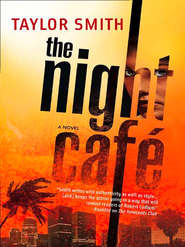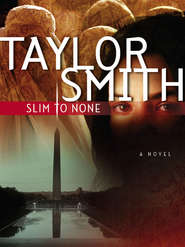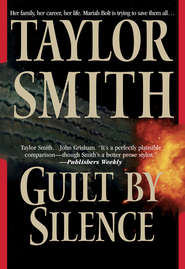По всем вопросам обращайтесь на: info@litportal.ru
(©) 2003-2024.
✖
Liar's Market
Автор
Год написания книги
2019
Настройки чтения
Размер шрифта
Высота строк
Поля
LONDON—Nearly four months after the shooting outside the U.S. Embassy in London that took the life of a young American tourist, questions remained as to the motive of the Pakistan-born taxi driver blamed in the attack.
U.S. and British intelligence officials say there is little doubt Ibn Mussa Ibrahim attacked to protest American foreign policy.
But if so, skeptics ask, why shoot an unarmed civilian? And why was Ibrahim himself later found shot to death and stuffed in the boot of his taxi?
Security cameras outside the embassy captured the attack on video. The tapes show a shadowy, bearded figure behind the wheel of the black London taxi. The cab pulled up at the embassy’s outer gates just before the driver let loose with a spray of automatic gunfire.
The embassy had already closed for the day when 19-year-old Karen Ann Hermann of Oakview, MD, who had just left the building, was caught in the hail of bullets fired from the cab. She died at the scene.
But friends of the 26-year-old cabbie insist he had no interest in politics. Ibrahim immigrated to the U.K. in 1996.
“All he wanted was to earn enough money to bring his fiancée from Peshawar,” said Ibrahim’s roommate, Farid Zacharias. “Al Qaeda? No way. He loved American movies and Burger King.”
An alternate theory is that Ibrahim’s taxi was hijacked before the embassy attack.
“You can’t tell me that’s him in those videos,” Zacharias argued. “It was dark and raining. How can they be sure?”
But security spokesmen say Ibrahim’s were the only fingerprints found in the cab and on the murder weapon, later recovered in London’s High Park.
“We think he was a sleeper, like the Sept. 11 hijackers,” a senior intelligence source said. “Several have been inserted into Western Europe and the U.S. to await assassination orders.”
As to why the cabbie was subsequently killed, it may be because he missed embassy personnel in the April attack.
“Murdering one young tourist probably didn’t pack the political punch his Al Qaeda masters were looking for,” the same high-level source said.
TOP SECRET
CODE WORD ACCESS ONLY
NOT FOR DISTRIBUTION
FEDERAL BUREAU OF INVESTIGATION
INTERVIEW TRANSCRIPTION
(continued…)
So, Carrie, we were talking about the murder of Karen Ann Hermann.
Right. As I said, I didn’t learn her name until later, but she was there in the lobby when I came out of the reception for the visiting senators. She left the building ahead of me. If I hadn’t gotten held up talking to the Gunny at the front desk, I probably would have been outside, too, when it happened.
You might have even been shot. Has that ever occurred to you?
Of course it has. It’s amazing more people weren’t hurt in that attack. It was really bad luck that she happened to be there the moment that terrorist drove up.
And so Karen Hermann died in your place.
I—what? In my place? Wait a minute, what are you saying? Are you suggesting he had a specific target? And I was it?
What do you think?
That’s not what the papers have been saying, and my husband never mentioned there was any suspicion it could have been something like that. Why would a terrorist target me specifically?
You said yourself you were struck by the similarity in your appearances that evening—yours and Karen Hermann’s.
Strictly superficial similarities.
You said you were taken aback by how much you looked alike.
It was a rainy day. Raincoats and umbrellas tend to be pretty generic. Plus, we both had our hair tucked up under berets, so, yes, we looked a little alike.
Enough that you were struck by it. You said it spooked you for a second.
Yes, but that’s because I’m a twin.
You have a twin? An identical twin?
Yes—or rather, I did have. Isabel died when we were eighteen, along with our parents. When you grow up with an identical twin, though, you never quite lose that sense that there’s supposed to be a mirror image of you out there somewhere. Even now, I get a shock when I accidentally see myself reflected in a store window or something, thinking it’s Izzie. Except, of course, it can’t be. She’s been gone over ten years. Still, I never seem to stop looking for her.
Was it a car accident she and your parents died in?
You must have this somewhere in those thick files of yours.
If so, I haven’t seen it. I mean, we try to be thorough, but unless it’s directly relevant to this investigation, the Bureau hasn’t got resources to waste on trivial details.
It isn’t trivial to me.
No, I’m sure. Sorry. That’s not what I meant. How did they die?
A fire. Our house burned down just after New Year’s in 1993. I was back at school by then. It was during my freshman year at Georgetown.
Your sister didn’t go?
No. She was still living at home with our parents back in San Diego. She didn’t go to college because she—well, she just didn’t go, that’s all. Anyway, the fire broke out in the middle of the night. No one survived.
I’m sorry.
Yes, well, anyway—as I said, after spending the first eighteen years of your life as half of a twosome, something always seems incomplete when you’re alone. That’s why I was momentarily struck by the similarity in Karen’s and my appearance that day at the embassy.
And it never occurred to you that someone else might have been confused by it, as well. The shooter in the cab, for example? And shot the wrong person?
But that would mean—wait a minute, are you serious? Is there any proof at all that man was lying in wait for me?
I’m asking if it might have occurred to you.
Well, the answer is, no, it didn’t. What possible evidence could you have that he was?
Security cameras at the embassy recorded the attack. We’ve analyzed those tapes six ways to Sunday. There’s no audio, but when the cab pulls up in front of Karen, she ducks down and looks inside, like the driver hailed her. And the Marines at the front gate said they heard the driver call out to her just before he opened fire.











